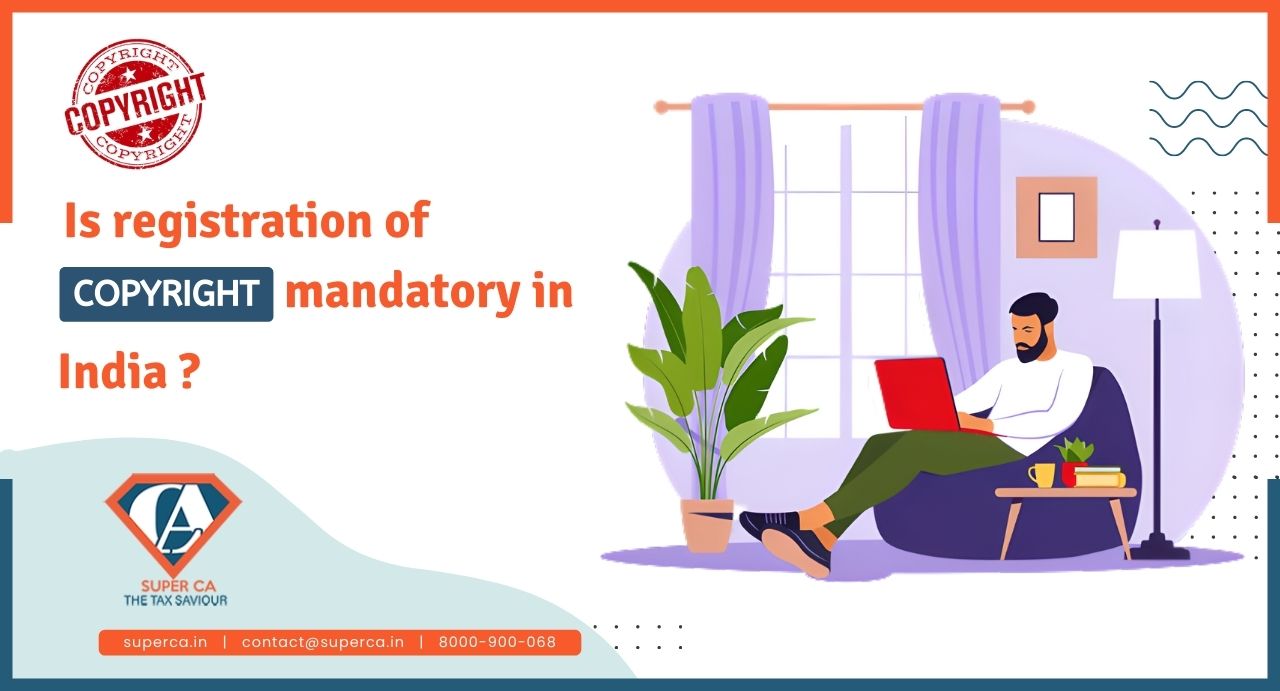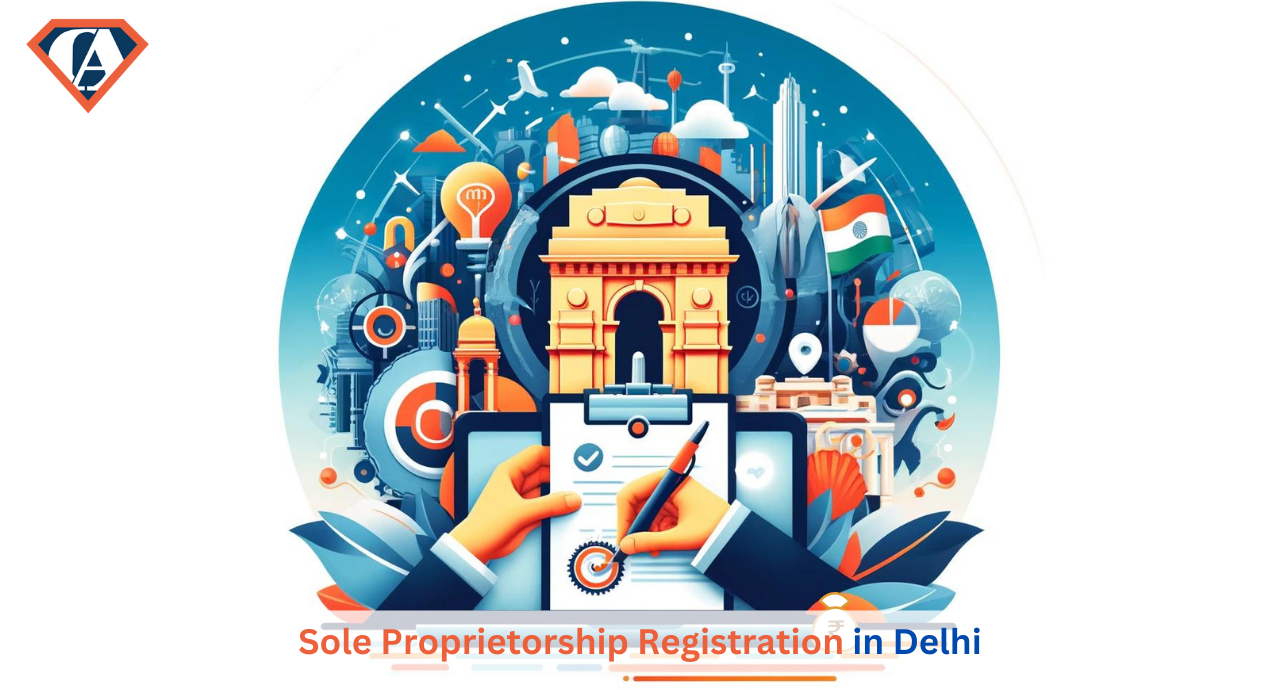Is registration of copyright mandatory in India?
- Posted By SuperCA
- On 24 January

About
A copyright is a set of rights granted to the creator of an original work of authorship, such as literature, music, films, software, art, architecture, and more. Once an original work is created and fixed, such as by taking a photograph or writing a poem, the creator becomes the sole owner of the copyright. The rights provided by copyright include the ability to reproduce the work, create derivative works, distribute copies, and perform and display the work publicly. Additionally, copyright also grants the owner the right to authorize others to exercise these exclusive rights, with certain statutory limitations.
As long as the copyright is in effect, the owner holds the sole right to share, display, perform, or license the material. It's important to note that as per the copyright act, only the expressions of an idea can be copyrighted, not the ideas themselves. For example, content on a website cannot be copied by a competitor, but the idea behind the content can be used by the competitor in business activity.
The Copyright Act of 1957 ensures the protection of original literary, musical, dramatic, audio, cinematographic, and other artistic works from unauthorized use. Both published and unpublished works are eligible for copyright protection, with the rights reserved for the original creator. Additionally, copyright registration is also available for works that were published prior to the implementation of the Copyright Act on 21 January 1958.
Copyright registration is not mandatory in India, however, its registration can serve as prima facie evidence in court in case of infringement disputes. The registration process is done through the Registrar of Copyrights and involves filling out an application form and submitting it along with the required documents and fee.
Validity of Registration
The protection provided by copyright for original literary, musical, dramatic, and artistic works lasts for the lifetime of the author and an additional 60 years following the author's death. However, for cinematograph films, sound recordings, photographs, posthumous publications, anonymous and pseudonymous publications, works of government, and works of international organizations, the 60-year period is calculated from the date of publication.
Benefits of Copyright Registration
➢ Copyright registration offers protection to original works or creations from unauthorized use, duplication, reproduction, or sale by anyone other than the creator or those authorized by the creator, whether online or offline.
➢ It deters others from using similar marks, thereby solving potential issues before they even arise.
➢ It helps prevent others from making unauthorized use of the author's work. If it is discovered that someone is copying the author's work, a `cease' notice can be sent, saving time and money that would otherwise be spent on legal proceedings.
➢ Registered copyright makes the work known globally and searchable in the copyright registry database.
➢ It gives the copyright holder the reputation that the work belongs to them, serving as an asset to the work and protecting the unique way in which the author or creator expresses themselves.
➢ With a registered copyright, it is much easier to take legal action against those who illegally copy the work. The Copyright Act, 1957 provides for imprisonment of six months to three years and a fine of at least INR 50,000 in case of infringement of the copyright holder's rights.
Online Registration Process
The process for online copyright registration involves submitting an application to the Copyrights Authority along with the required fee, which can be paid through a demand draft or online payment methods. The steps for the process are as follows:
Step 1: Visit https://copyright.gov.in
Step 2: Log in with a valid User ID and Password, or register as a new user if not already registered.
Step 3: After logging in, click on the link for "Online Copyright Registration."
Step 4: Complete the four steps of the online Copyright Registration Form, including Form XIV, the Condition of Particulars, and the Condition of Further Particulars. The author's signature must be scanned and uploaded in a 500 KB file.
Step 5: Make payment through the internet payment gateway.
Step 6: Once the application is submitted, a unique diary number will be generated and allocated to the applicant. With this number, the applicant can track the status of the application. Within 30 days of submitting the application, the applicant must also submit the work to be copyrighted to the authorities.
Step 7: After the application and work have been submitted, they will be examined by the Copyrights Authority. The examiner may accept the application, raise objections, or request additional documents. Once satisfied with the copyright claim, the Registrar of Copyrights will enter the details into the register and issue a certificate of registration.
Suggested Read: How To Apply For Online Copyright Registration?
Conclusion
Digital property rights became an increasingly hot topic everywhere with the increase in the penetration of the web. In summary, while copyright registration is not mandatory in India, it is a useful tool that can provide additional legal protection for the copyright holder. Any person or business entity can obtain copyright registration. An individual can be an author, creator, musician, photographer, producer, painter, composer, or company who must have created an original work.
Also Read:
What Is The Difference Between Copyright And Trademark?





